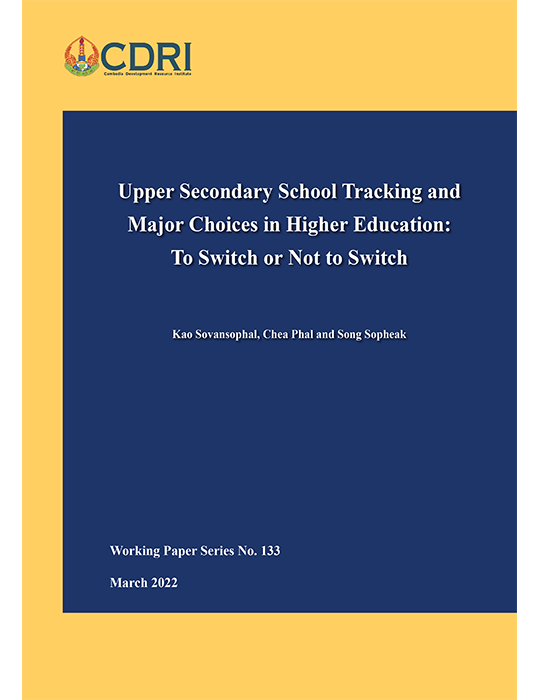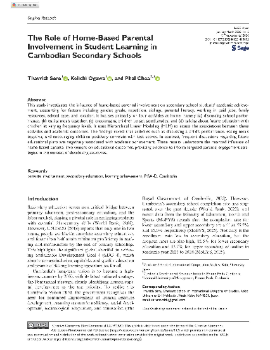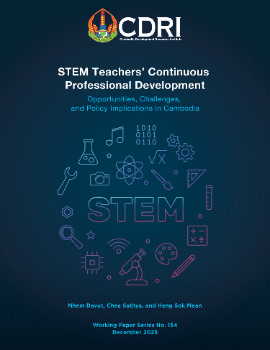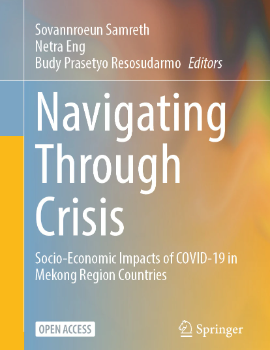
Upper Secondary School Tracking and Major Choices in Higher Education: To Switch or Not to Switch
Keyword: Academic tracking, major choice, major switching, STEM, Cambodia
Abstract/Summary
This study explores the phenomenon of academic major switching among Cambodian students transitioning from upper secondary school to higher education. Despite a high proportion of students enrolling in the science track at secondary level, only a minority pursue STEM majors at university. Using survey data from 1,338 students across 21 higher education institutions, the study investigates switching patterns and the factors influencing students’ decisions. Findings reveal that 54.4 percent of students switched majors, with most science-track students opting for non-STEM fields such as business and management. Female students, private school attendees, and those from urban areas are more likely to switch. Probit regression analysis identifies key predictors of switching: gender, academic performance, subject preference, family socioeconomic status, and higher education institution location. Notably, students with strong interest or perceived ability in mathematics and physics are less likely to switch. The study highlights the need for improved science teaching methods, targeted career guidance, and reconsideration of entrance exam criteria to support continuity in STEM education. These insights inform policy efforts to strengthen Cambodia’s STEM pipeline and align educational pathways with national development goals.



